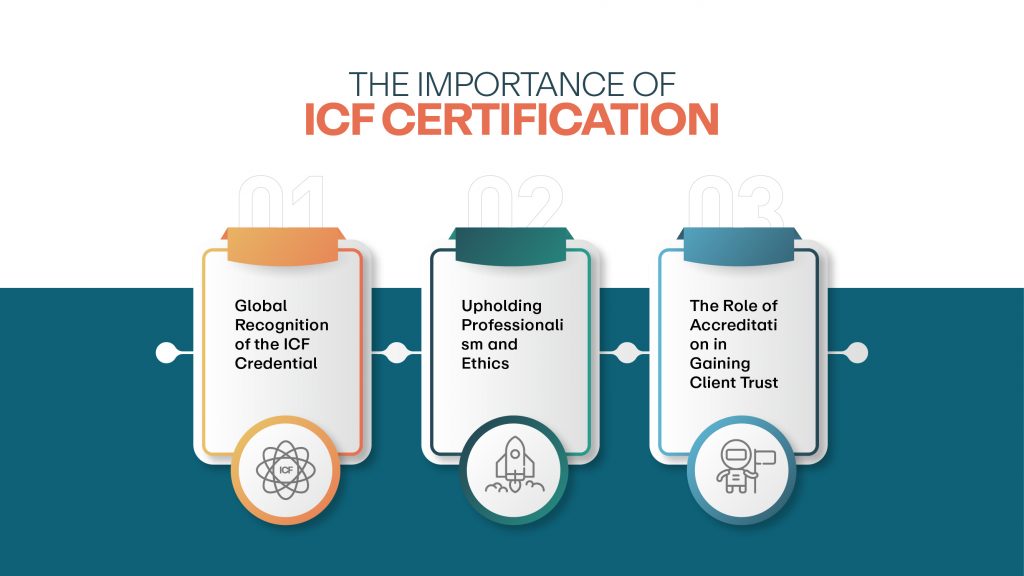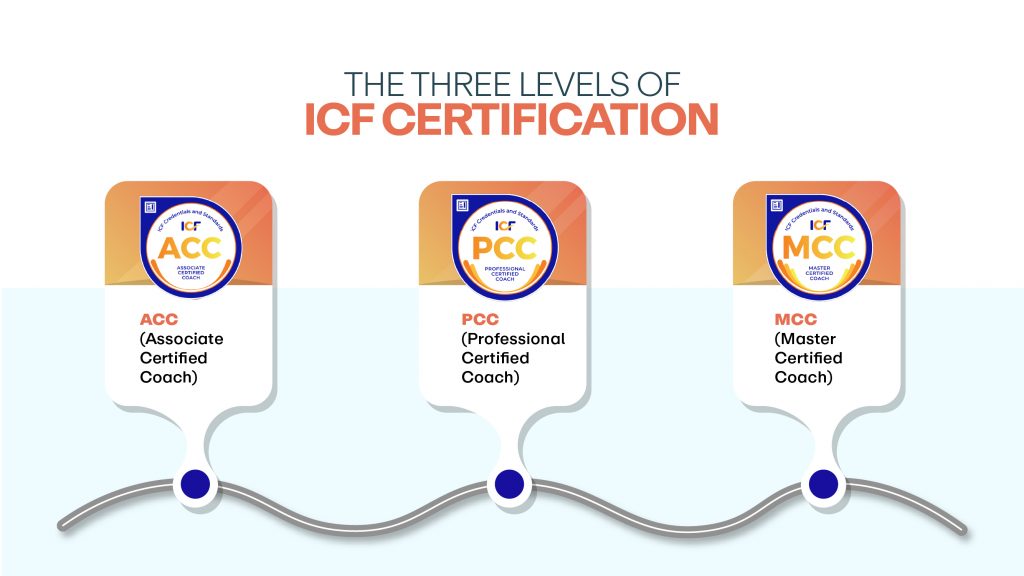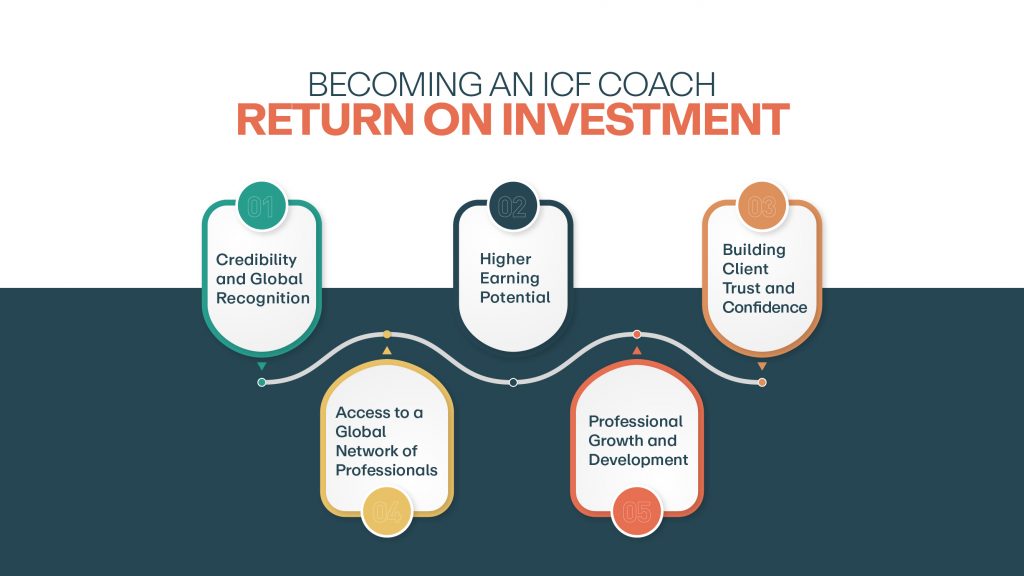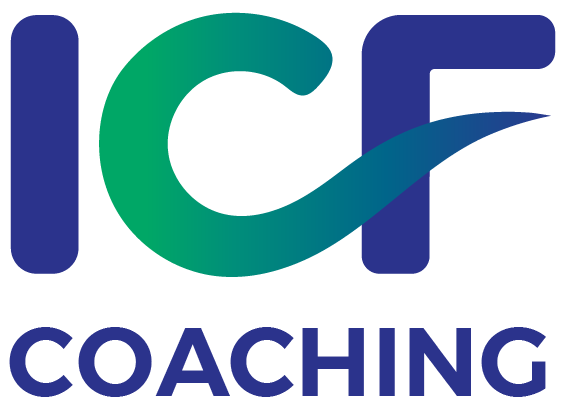Table of Contents
ToggleAn ICF Coach’s Journey: Overcoming Challenges and Shaping the Future

Introduction to ICF Coaching
In a world where guidance and growth are more essential than ever, the role of an ICF certified coach has emerged as a beacon for personal and professional transformation. As a lighthouse in a storm, the ICF Coach lights the way for clients seeking clarity, direction, and lasting change. But what does it truly mean to be an ICF Coach, and why is the certification such a coveted credential in the world of coaching?
The Essence of an ICF Coach
At its core, being an ICF Coach is about empowerment. It’s about harnessing the potential in individuals, helping them uncover their own strengths, and guiding them to overcome internal and external barriers. The International Coaching Federation (ICF) sets rigorous standards to ensure that every ICF Coach is well-equipped to navigate this complex journey of personal discovery.
Why Become an ICF Certified Coach?
Becoming an ICF Certified Coach isn’t just about adding another badge to your portfolio; it’s about credibility and trust. ICF coaches are trained not just in the techniques of coaching, but in maintaining ethical standards and professional integrity. Clients feel reassured knowing they are working with someone who adheres to these high standards.
The Importance of ICF Certification

Global Recognition of the ICF Credential
The ICF certification is recognised worldwide, making it a valuable credential for anyone looking to establish a reputable coaching practice. Whether you’re working with individuals, teams, or corporate executives, having an ICF credential demonstrates your commitment to excellence.
Upholding Professionalism and Ethics
As an ICF certified coach, you pledge to uphold the ICF code of ethics. This framework not only ensures that you maintain professionalism but also safeguards the integrity of the coaching relationship. It sets you apart in an industry where anyone can claim to be a coach, but few meet such high standards.
The Role of Accreditation in Gaining Client Trust
Clients are more likely to trust coaches with ICF certification because it assures them that they are working with someone who has received comprehensive training and follows best practices in the coaching industry. This trust forms the foundation for a successful coaching relationship.
Becoming an ICF Coach: The Path to Certification

The Three Levels of ICF Certification
There are three levels of ICF certification that aspiring coaches can pursue, each representing a different stage in their coaching career.
ACC (Associate Certified Coach)
This is the entry-level certification for ICF coaches. To achieve ACC status, you need to complete at least 60 hours of coach-specific training and 100 hours of coaching experience.
PCC (Professional Certified Coach)
The next step up, the PCC certification, requires 125 hours of coach training and 500 hours of coaching experience. This level demonstrates that a coach has a deeper understanding and more substantial experience in coaching.
MCC (Master Certified Coach)
The pinnacle of ICF certification, MCC status, is reserved for those with over 200 hours of training and at least 2,500 hours of coaching experience. This designation is for coaches who have truly mastered their craft.
Time Commitment and Investment for ICF Certification
Becoming an ICF certified coach requires a significant investment of both time and money. However, the return on this investment is well worth it. Coaches with ICF certification often command higher fees and attract more clients due to their proven expertise.
Mentoring and Experience Requirements
A key part of the ICF certification process is mentoring. Coaches must work with an experienced mentor to refine their skills, ensuring they are fully prepared for the practical challenges of coaching. Experience requirements ensure that every ICF coach has real-world coaching knowledge before achieving certification.
Becoming an ICF coach: Return on Investment
Deciding to invest in becoming an ICF certified coach can feel like a big leap. After all, the time, money, and energy required to attain this globally recognised certification are considerable. But is it worth it? For those serious about making a lasting impact in the coaching industry, the answer is unequivocally yes. Here’s why becoming an ICF certified coach is worth every penny.

Credibility and Global Recognition
The International Coaching Federation (ICF) is one of the most respected coaching bodies in the world. Earning an ICF certification immediately sets you apart in a crowded marketplace. When clients search for a coach, they look for someone they can trust—someone who has proven expertise. An ICF credential serves as that seal of approval.
In an industry where anyone can claim to be a coach, the ICF certification shows clients that you have undergone extensive training and follow ethical guidelines. It’s a marker of professionalism that elevates your credibility and ensures clients that they’re investing in a relationship with someone committed to their growth.
Higher Earning Potential
ICF-certified coaches typically command higher rates than their non-certified counterparts. Why? Because clients are willing to pay more for quality and trust. ICF certification not only assures clients that you’re a qualified coach but also that you’ve committed to maintaining the highest standards in your practice.
This higher earning potential extends beyond individual coaching sessions. Many organisations, especially large corporations, prefer hiring ICF-certified coaches for leadership development, team building, and executive coaching. These lucrative contracts can significantly boost your coaching income and open doors to long-term engagements.
Building Client Trust and Confidence
One of the biggest challenges coaches face is building trust with new clients. With an ICF certification, this hurdle becomes easier to overcome. Clients who may be hesitant or unsure about working with a coach often feel reassured when they know their coach has gone through rigorous training and is backed by a global body.
This trust goes a long way in building a successful coaching relationship. When clients feel confident in your abilities, they’re more likely to commit to long-term coaching, leading to better results for them and sustained business for you.
Access to a Global Network of Professionals
As an ICF-certified coach, you gain access to a global network of professionals. The ICF community is vast, and being part of it allows you to connect with other coaches, share insights, and learn from their experiences. This network can be invaluable, whether you’re seeking advice, exploring collaborations, or simply looking for support.
Additionally, ICF offers continuous learning opportunities. From workshops to webinars and conferences, the ICF provides resources that help you stay updated with industry trends, ensuring your coaching practice remains relevant and competitive.
Professional Growth and Development
ICF certification isn’t just about validating your skills; it’s about pushing you to grow as a coach. The certification process requires you to reflect on your coaching practice, identify areas for improvement, and continuously develop your skills. This dedication to professional growth not only makes you a better coach but also ensures that you can offer more value to your clients.
The mentorship and feedback you receive during the certification process are instrumental in refining your coaching techniques. The experience prepares you to handle a wide variety of client needs with confidence and professionalism.
While becoming an ICF certified coach is an investment in terms of time, money, and effort, the returns far outweigh the costs. From greater credibility and higher earning potential to a stronger professional network and personal growth, the benefits are clear. If you’re serious about building a successful coaching career and making a meaningful impact, becoming an ICF certified coach is an investment that will pay off for years to come.
The ICF Coach- A Growing Breed
As seen with ample evidence, professional coaching has taken center stage, with ICF coaches leading the charge. As businesses and individuals seek more profound personal and professional growth, the demand for certified coaching has seen a significant spike. So, are ICF coaches truly a growing breed? The answer is a resounding yes, and here’s why.
Rising Demand for Professional Coaches
As more individuals embrace the need for personal development, the demand for professional coaches has skyrocketed. People no longer seek advice only from friends or family; they now look for trained professionals to help them navigate life’s challenges. Enter the ICF-certified coach, whose certification signals a commitment to professionalism, ethics, and real results.
Organisations, too, have recognised the value of professional coaching. Leadership development, team dynamics, and corporate culture are often guided by ICF-certified coaches. As businesses become more competitive and employees yearn for meaningful career development, coaching has emerged as a vital tool to nurture talent, improve leadership, and increase performance.
The Value of ICF Certification
The International Coaching Federation (ICF) is a well-respected body, globally recognised for its stringent certification process. ICF certification requires a rigorous training, mentorship, and adherence to ethical standards. Coaches who achieve ICF certification are regarded as professionals who have mastered the art of coaching, making them stand out in an increasingly crowded industry. This credential is not just a badge but a reflection of the coach’s dedication to continuous learning and professional development.
As clients become more discerning, they look for coaches who are credible and trustworthy. The ICF credential offers that reassurance. It tells clients that the coach they’re working with is not only skilled but also adheres to high ethical standards, which is crucial in maintaining a professional relationship. In a field that anyone can claim expertise in, an ICF-certified coach carries a significant edge.
Why the Market is Expanding
Several factors have contributed to the rapid growth of ICF coaches:
- Shift in Work Culture: With the rise of remote work and shifting career priorities, employees now seek balance, purpose, and guidance in their professional lives. ICF coaches help individuals and teams to navigate these transitions effectively.
- Increased Focus on Mental Health: As mental health awareness rises globally, coaching is being recognised as a vital tool for improving well-being. While therapy deals with past trauma, coaching focuses on the present and future, guiding individuals to overcome hurdles and achieve their goals.
- Global Recognition: As the world becomes more connected, professionals and companies alike seek internationally recognised certifications. The ICF certification’s global reputation opens doors to clients and opportunities worldwide, expanding the reach of certified coaches.
The Growth of Niche Coaching
One factor contributing to the growing breed of ICF coaches is the expansion of coaching niches. No longer is coaching confined to life or business coaching. Today, you’ll find ICF-certified coaches specialising in everything from leadership development to wellness, career transitions, and even mindfulness coaching. This specialisation allows coaches to offer more tailored services, attracting clients with very specific needs.
As industries evolve, so do the areas of coaching. For example, with mental health becoming a prominent focus, wellness coaching has gained traction. Leadership coaching, too, has seen exponential growth, especially in executive circles, where C-suite leaders seek guidance to improve their decision-making and emotional intelligence. Each of these niches requires specialised knowledge and training, something that an ICF-certified coach is well-equipped to offer.
Technology and the Rise of Online Coaching
Technology has further propelled the growth of the ICF coaching industry. With the rise of virtual communication tools, coaching is no longer limited by geography. Coaches can now serve clients across the globe from the comfort of their homes. This has opened up opportunities for more coaches to enter the market, allowing them to reach a broader audience and expand their practice.
The shift to online coaching has also lowered entry barriers for both clients and coaches. Individuals who may have been hesitant to commit to in-person sessions are now more open to the idea of virtual coaching. This accessibility has led to a growing number of people seeking out ICF-certified coaches, further driving the demand.
The Coaching Landscape is Becoming More Competitive
The number of coaches entering the market continues to grow, and with that growth comes more competition. Being a certified ICF coach, however, gives you a significant edge. Clients today are more discerning and seek coaches with verifiable credentials. This means ICF coaches have a clear advantage over non-certified counterparts, making them more likely to secure long-term, high-quality clients.
The Future Outlook: A Growing Trend
The future of ICF coaching looks brighter than ever. As the coaching profession continues to gain respect and recognition, ICF-certified coaches will remain at the forefront of this trend. The growing awareness of coaching’s positive impact, both in personal and professional settings, means that more individuals and organisations will turn to ICF coaches for guidance.
Moreover, as industries evolve and face new challenges, coaches will play a pivotal role in helping people adapt, grow, and thrive. Whether it’s navigating the complexities of leadership in a post-pandemic world or fostering emotional resilience, ICF coaches are uniquely positioned to meet these needs. In a world that’s constantly changing, the role of an ICF-certified coach has become more relevant than ever. With rising demand, the growth of niche markets, and the power of technology, it’s clear that ICF coaches are indeed a growing breed. They are not only shaping the future of the coaching industry but also making a lasting impact on the lives of individuals and organisations alike.
Challenges Faced by ICF Certified Coaches
The Competitive Coaching Market
With coaching becoming a rapidly growing industry, the competition is fierce. Many ICF certified coaches struggle with how to differentiate themselves in a saturated market.
Standing Out Among Other Coaches
To succeed, ICF coaches need to develop a unique value proposition. This could involve focusing on a particular niche or adopting a signature coaching style that resonates with a specific audience.
Finding Your Coaching Niche
Specialising in areas such as leadership development, wellness coaching, or career transitions can help you stand out and attract clients who are looking for a coach with expertise in a specific area.
Building a Sustainable Practice
Once certified, ICF coaches often face the challenge of building a steady stream of clients. This requires not just coaching skills, but also marketing acumen, networking, and continuous professional development.
Keeping Up with Industry Trends
The coaching industry is constantly evolving. New techniques, tools, and technologies are emerging all the time. ICF certified coaches need to stay ahead of the curve by continually upgrading their skills and knowledge.
The Future of ICF Coaching
Increasing Demand for Professional Coaches
The demand for professional coaching is growing, and the need for ICF certified coaches is expected to rise in the coming years. As organisations recognise the value of coaching in fostering leadership and performance, the future looks bright for ICF coaches.
The Rise of Executive and Leadership Coaching
More companies are turning to ICF certified coaches for leadership development and executive coaching, recognising that investing in human capital translates to better business outcomes.
The Influence of AI and Technology in Coaching
Technology is changing the coaching landscape. From AI-driven coaching apps to virtual coaching sessions, ICF certified coaches will need to adapt to new tools while maintaining the human touch that defines effective coaching.
The Role of ICF Coaches in Mental Health and Wellness
Sustainability and Impact in Coaching Practices
FAQs
Conclusion
Becoming an ICF certified coach is a rewarding yet challenging journey. The certification offers a path to credibility, trust, and growth in an ever-expanding coaching industry. By navigating market competition, building a sustainable practice, and staying updated with industry trends, ICF coaches are poised to lead the future of coaching.

